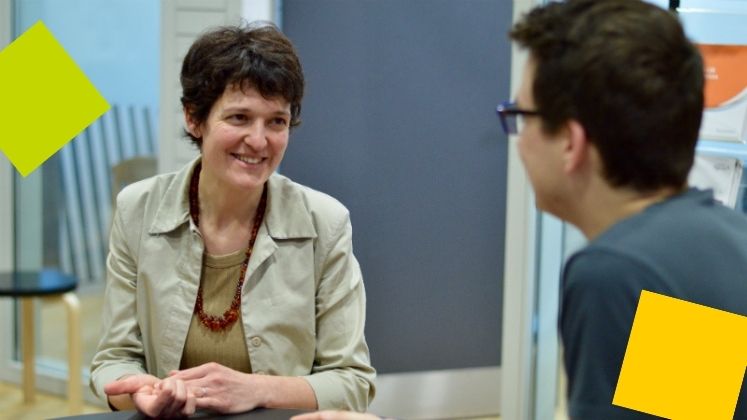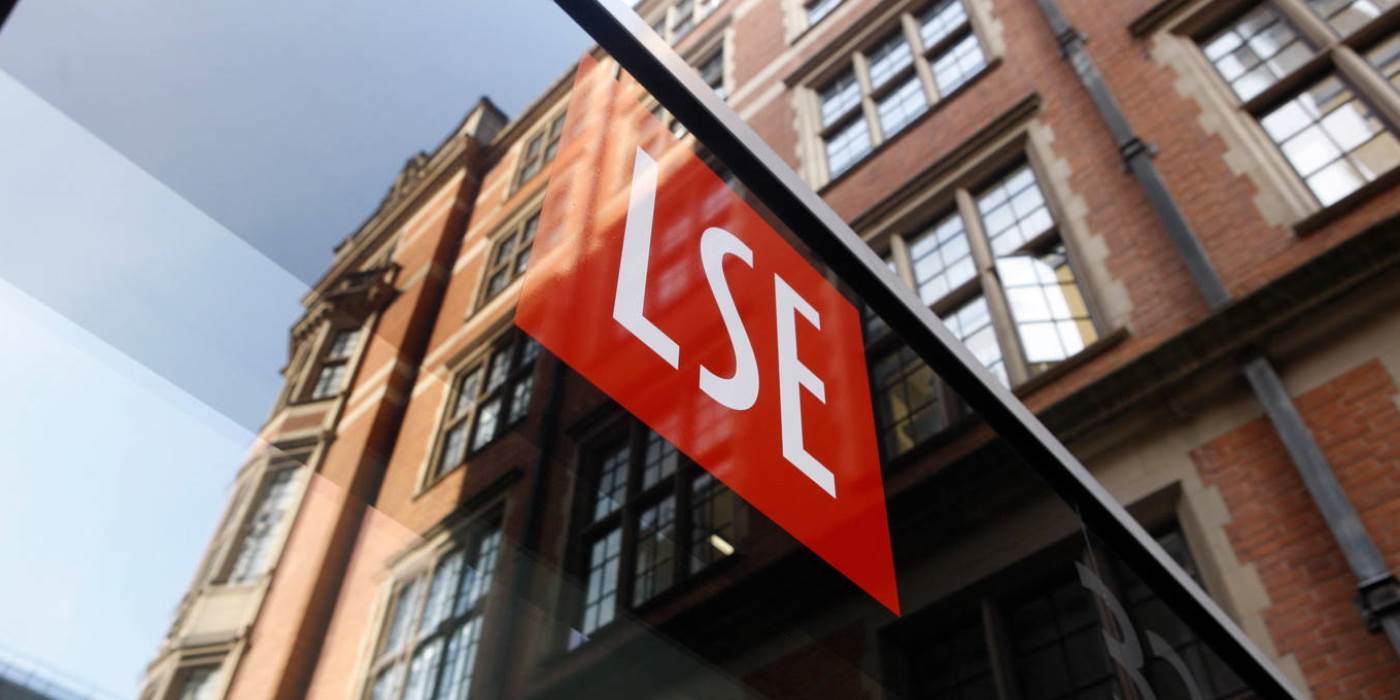Browser does not support script.
- Current Students

We are ranked #1 in the UK for Social Policy
The study of contemporary social, political and economic problems, such as poverty, inequality, crime, unemployment, healthcare, education and housing, and the potential policy responses to them.

Undergraduate Explore our BSc programmes

Postgraduate Explore our MSc and MPA programmes

PhD Explore our research degree programmes

Social Policy Multidisciplinary research led teaching
Watch the video

Support during your studies Academic guidance, advice and pastoral care

Student life What is it like to be an LSE student?

Thinking of doing to a Social Policy undergraduate degree at LSE? Here's ten reasons why you should.

MSc in International Social and Public Policy Pocket size wisdom from three Social Policy students

A year in the life of a PhD student Social Policy Blog

Academics and MSc students talk about Criminal Justice Policy at the LSE


Alex talks about how her BSc in Social Policy supports her work
Contact Us +44 (0)20 7955 7345
Undergraduate enquiries [email protected]
Postgraduate enquiries [email protected]
Research degree enquiries [email protected]
Department of Social Policy, 2nd Floor, Old Building, London School of Economics and Political Science, Houghton Street, London WC2A 2AE
Follow us on Social Media
Follow the latest news
- Log in
- Site search
Social Policy
Entry requirements.
The minimum entry requirement for this programme is an upper second class honours (2:1) bachelor's degree (or equivalent), plus high merit (65+) in a master’s degree or equivalent, preferably in social policy, or public policy and a high merit (65+) in the dissertation.
Months of entry
Course content.
About the MPhil/PhD programme
Social policy at LSE is about the development, design, analysis, and evaluation of public policies. We cover a wide range of policy areas including crime, education, migration, population, social disadvantage, inequalities, and social security. The issues underpinning our work are global in application. What determines the needs, rights, and wellbeing of citizens and non-citizens? What is, and what should be, the roles of the state, the family, the market, and civil society?
This programme offers the chance to undertake a substantial piece of work that is of publishable quality and which makes an original contribution to the field of social policy. You will begin on the MPhil, and will need to meet certain requirements to be upgraded to PhD status.
You will be offered supervision in a wide range of specialist topics and will become a member of a vibrant and exciting research community. You will have access to a full collection of UK, US and EU public documents, parliamentary papers and statistical data as well as use of cutting edge networked computer facilities dedicated to research students, in the Social Science Research Laboratory within the Department.
Alongside the PhD programme, students have the opportunity to access broad LSE resources such as the PhD Academy and audit courses across the School. The Department of Social Policy is also associated with research centres such as the International Inequalities Institute (III), Centre for Analysis of Social Exclusion (CASE) and the Mannheim Centre for Criminology which students can be involved with.
Department of Social Policy
The Department of Social Policy is an internationally recognised centre of research and teaching in social and public policy. From its foundation in 1912 it has carried out cutting edge research on core social problems, and helped to develop policy solutions. The Department today, with its international faculty, is distinguished by its multidisciplinarity, its international and comparative approach, and its particular strengths in behavioural public policy, criminology, development, economic and social inequality, education, migration, non-governmental organisations (NGOs) and population change and the lifecourse. Their exceptional contribution to the field of Social Policy has been recognised in the 2021 Research Excellence Framework (REF), with their submission obtaining the top-ranked score.
Information for international students
LSE is an international community, with over 140 nationalities represented amongst its student body. We celebrate this diversity through everything we do.
If you are applying to LSE from outside of the UK then take a look at our Information for International students .
Fees and funding
Every graduate student is charged a fee for their programme. Visit the website for more information about the fees .
The School recognises that the cost of living in London may be higher than in your home town or country, and we provide generous scholarships each year to home and overseas students.
LSE offers studentships to new PhD students in the form of LSE PhD Studentships, LSE ESRC Studentships, LAHP AHRC Studentships and LSE & III PhD Studentships on Analysing and Challenging Inequalities.
These awards are open to high calibre students of all nationalities studying across all research areas at the School.
Find out more about financial support.
Qualification, course duration and attendance options
- Campus-based learning is available for this qualification
Course contact details
Browser does not support script.
- Current Students

PhD Funding
Financial support available to social policy research students.

There is no separate application for funding. Funding is allocated by nomination and you will automatically be considered for the award you are eligible for alongside all applications received by the funding deadline. There are two types of funding available for the MPhil/PhD in Social Policy
LSE Studentships
LSE studentships for UK, EU and OS candidates
ESRC Scholarships
ESRC scholarships (1+3 and +3 schemes) for UK and EU candidates
- The 1+3 scheme provides funding for a one year research training Master's linked to a three year PhD and is designed for students who have not already completed an ESRC-recognised programme of research training at MSc level. 1+3 candidates for the MPhil/PhD Social Policy programme should apply for the MSc International Social and Public Policy (Research) and include an outline research proposal that fully covers the elements required as set out on the research programmes page . Transfer from the one-year MSc programme to the three-year MPhil/PhD programme is dependent on obtaining high marks in the Master's degree (65%+).
- The + 3 scheme provides three years funding for the MPhil/PhD programme for students who have already achieved an ESRC-recognised 'research training' MSc or have undertaken equivalent research training. + 3 candidates should submit an application with information on their ESRC recognised 'research training' MSc. If you do not have the ESRC-recognised research training, you will need to include information on the training that you have already undertaken with a statement making the case of its equivalence in particular with regard to research methods training
LSE's Financial Support Office administers a variety of studentships and award schemes for which different deadlines apply. There may be other funding opportunities available through other organisations or governments and we recommend you investigate these options as well.

COMMENTS
Join a world-renowned social policy department. What determines the needs, rights and wellbeing of citizens? What role should the state, family, markets and civil society play in our lives? These are central questions underpinning our research activities at LSE.
The MPhil/PhD Social Policy is part of the Social Policy group of accredited programmes for ESRC funding. LSE is an ESRC Doctoral Training Partnership. Find out about scholarship opportunities available for the Department of Social Policy.
The Department of Social Policy provides international research and teaching on social and public policy challenges facing countries across the world.
The interdisciplinary nature of Social Policy means that when you graduate you will be equipped with a broad range of knowledge and skills that can be applied in many different settings.
As Social Policy students, we know you are passionate about the issues affecting the world we live in and our global community and these could be great opportunities for you, not only to connect with your community but also gain some valuable life skills along the way!
There are two types of funding available for the MPhil/PhD in Social Policy. LSE Studentships. LSE studentships for UK, EU and OS candidates. ESRC Scholarships. ESRC scholarships (1+3 and +3 schemes) for UK and EU candidates
The study of contemporary social, political and economic problems, such as poverty, inequality, crime, unemployment, healthcare, education and housing, and the potential policy responses to them.
Social policy at LSE is about the development, design, analysis, and evaluation of public policies. We cover a wide range of policy areas including crime, education, migration, population, social disadvantage, inequalities, and social security.
Social policy at LSE is about the development, design, analysis, and evaluation of public policies. We cover a wide range of policy areas including crime, education, migration, population, social disadvantage, inequalities, and social security.
There are two types of funding available for the MPhil/PhD in Social Policy. LSE Studentships. LSE studentships for UK, EU and OS candidates. ESRC Scholarships. ESRC scholarships (1+3 and +3 schemes) for UK and EU candidates